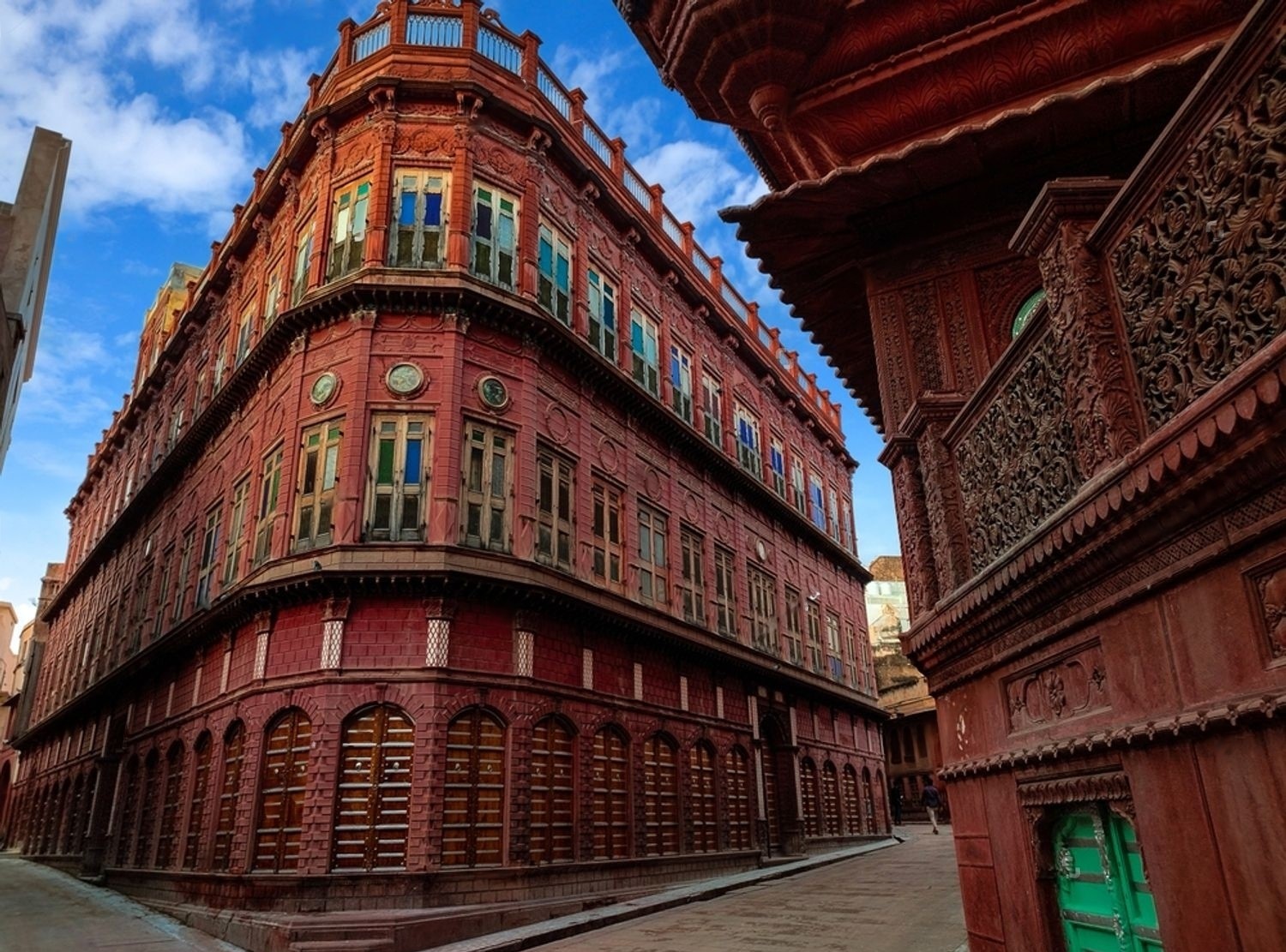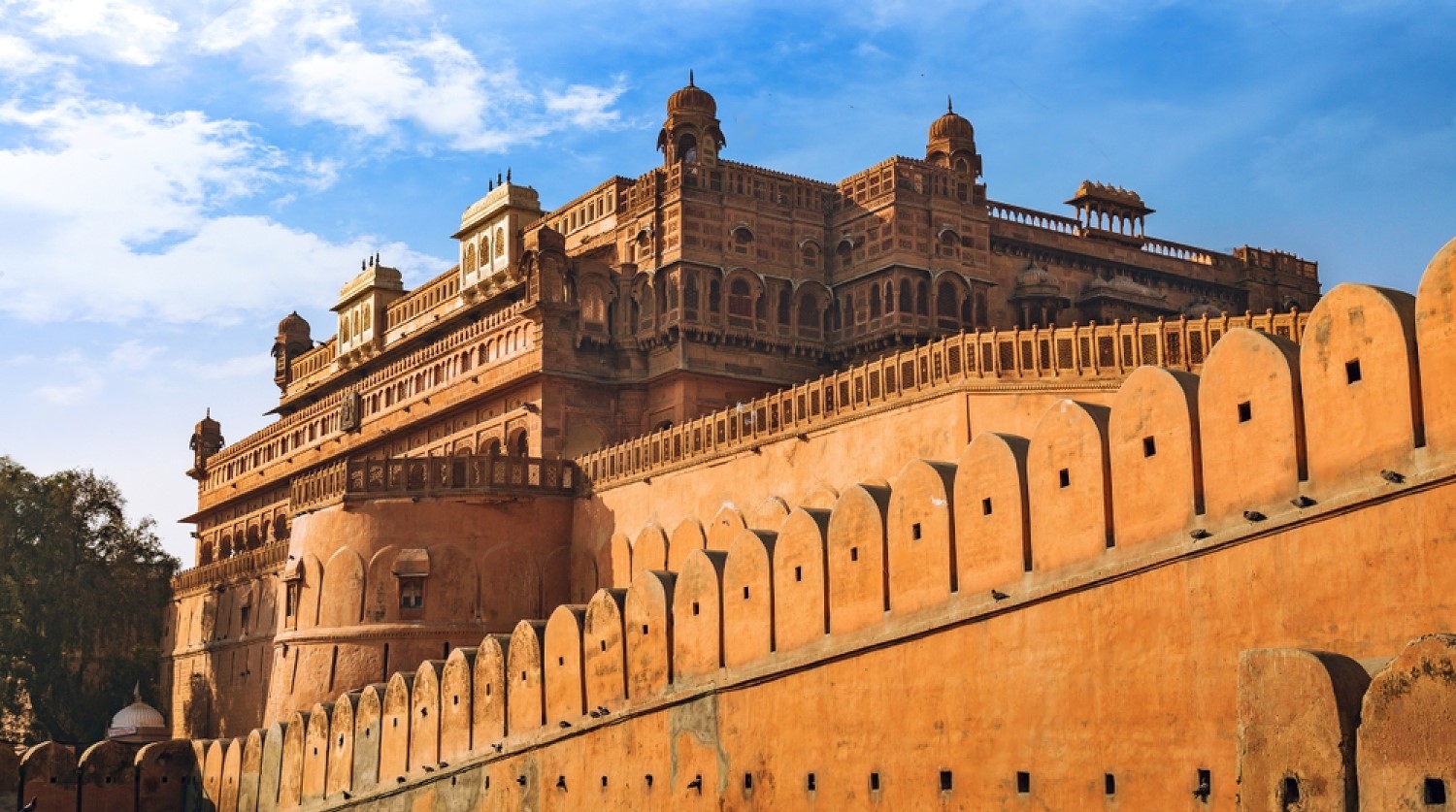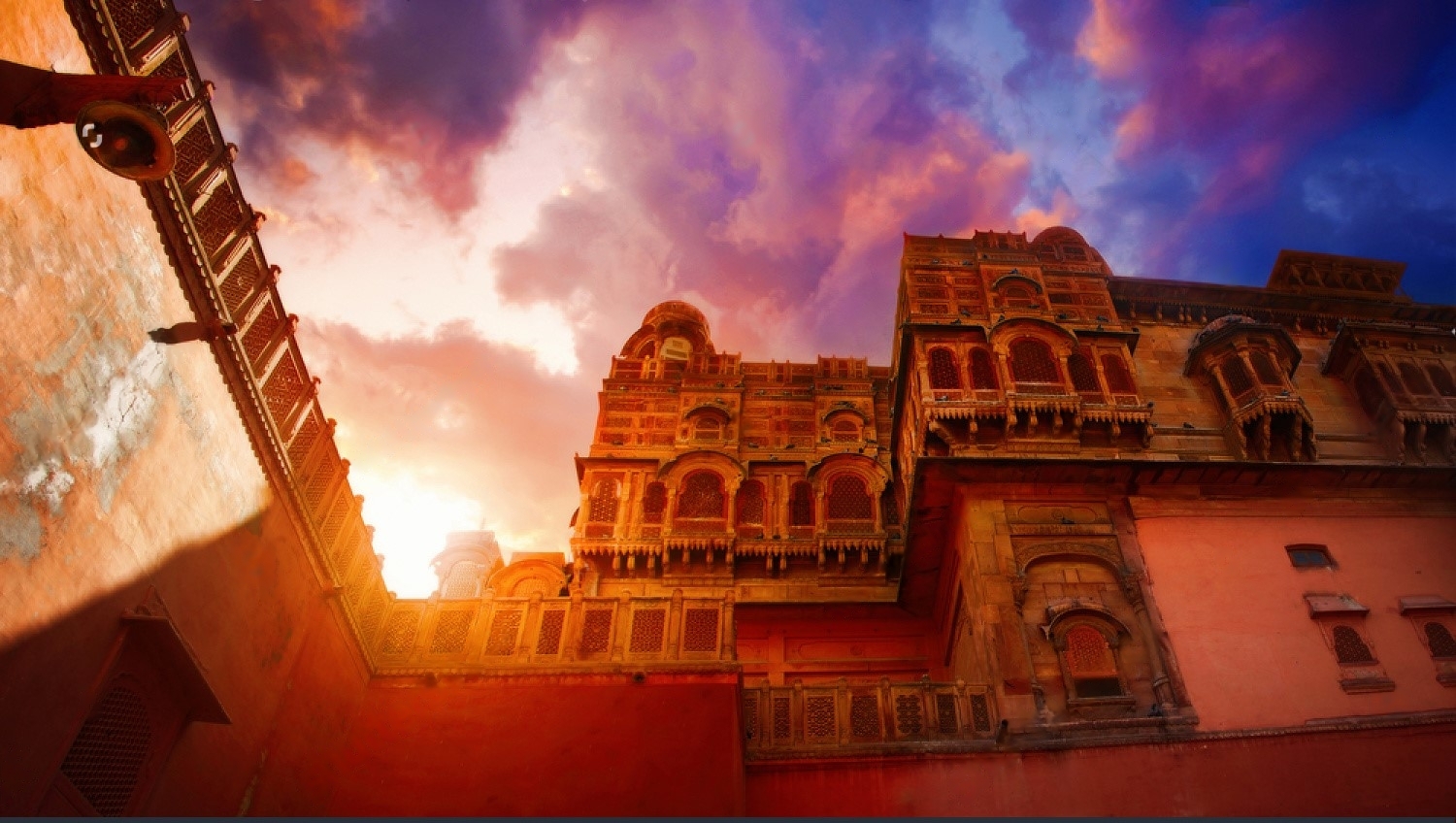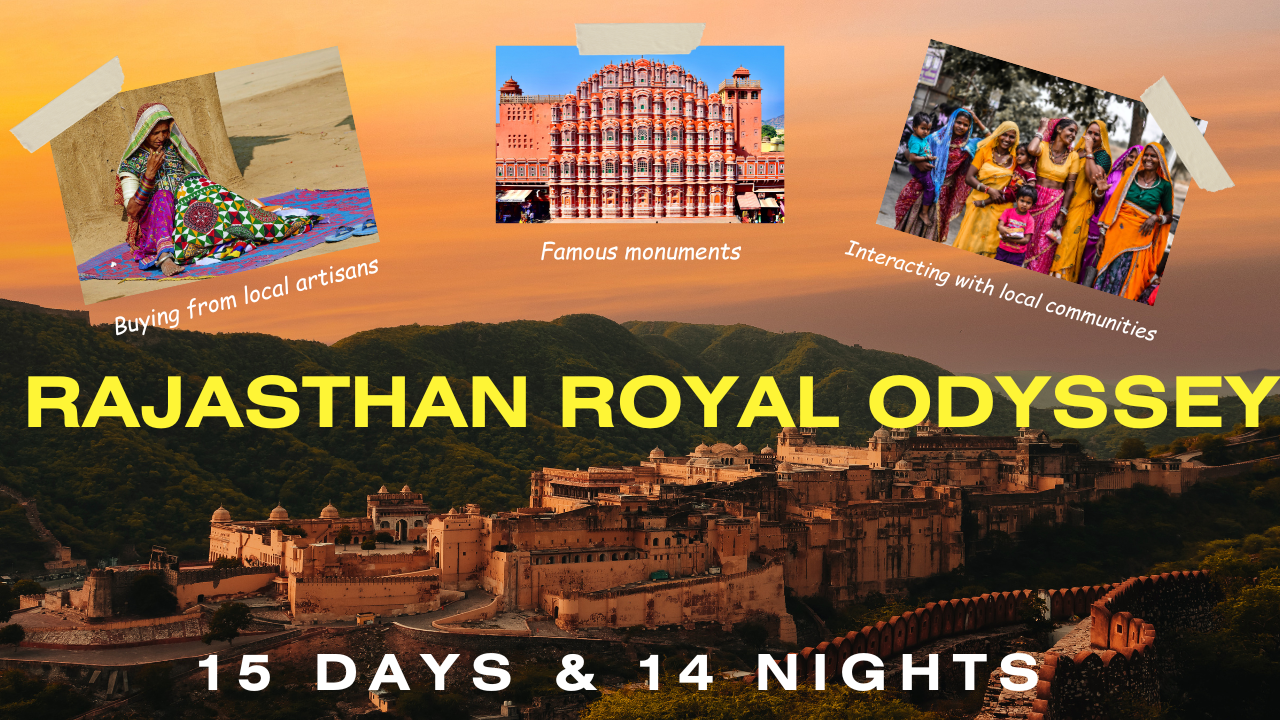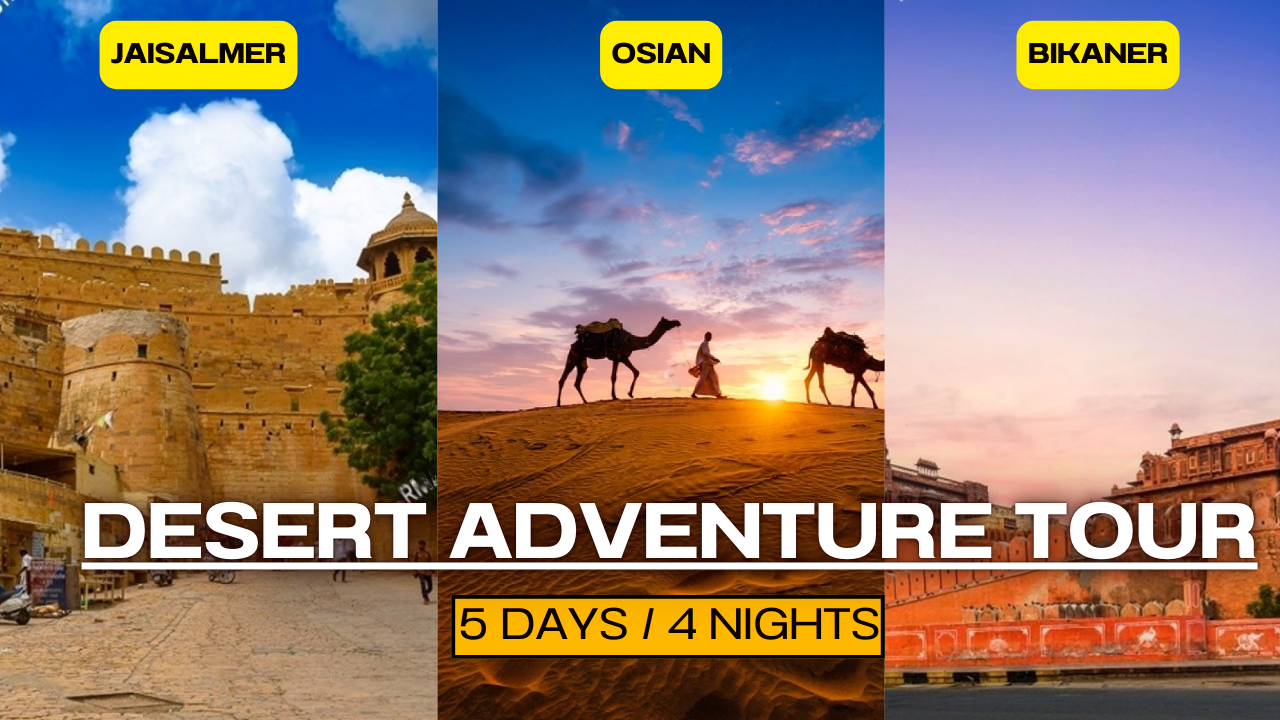Overview
Bikaner, located in the state of Rajasthan, India, is a historical city with rich cultural heritage and architectural marvels, often overshadowed by its more famous counterparts like Jaipur and Jodhpur. Situated in the northwest region of Rajasthan, Bikaner is an important cultural and commercial hub, known for its unique blend of Rajput history, desert landscapes, and vibrant traditions. Here’s a detailed description of Bikaner:
1. Historical Significance
Bikaner was founded in 1488 by Rao Bika, a Rajput prince, who established the city as a trading post in the desert. Over the centuries, it grew to be a prominent kingdom. The city holds a distinctive place in the annals of Rajasthan due to its strategic location along the ancient trade routes connecting Central Asia and the Indian subcontinent. Bikaner has been a seat of power and a melting pot of various cultures, with influences from Persian, Mughal, and Rajput traditions.
2. Famous Attractions
- Junagarh Fort: One of the most well-preserved forts in Rajasthan, Junagarh Fort is an exquisite example of Rajput and Mughal architecture. The fort complex includes palaces, temples, and museums, with intricate carvings, beautiful courtyards, and stunning frescoes. It provides an insight into the grandeur of Bikaner’s royal history.
- Karni Mata Temple (Deshnok): Situated 30 km from Bikaner, this unique temple is dedicated to Karni Mata, a revered local deity. The temple is famous for being home to thousands of rats, considered sacred and worshipped by devotees. Visitors come to witness the religious customs, including feeding the rats and experiencing this distinctive spiritual setting.
- Lalgarh Palace: A majestic palace built in the 20th century by Maharaja Ganga Singh, the Lalgarh Palace combines Rajput and Mughal styles with European influences. It is now a heritage hotel that offers a glimpse into royal life, featuring a blend of old-world charm and modern amenities.
- Bhandasar Jain Temple: A significant Jain pilgrimage site, this temple is renowned for its beautiful architecture and intricate carvings. Built in the 15th century, it is dedicated to the Jain Tirthankar, Adinatha. The temple’s vibrant murals and wooden ceilings are worth seeing.
- Gajner Palace: Located about 32 km from Bikaner, this palace was once the summer retreat for the royal family. Set amidst a serene lake, it is now a heritage hotel. Visitors can enjoy the beauty of the palace’s red sandstone structure and the peaceful surroundings.
3. Culture and Traditions
Bikaner is a vibrant city known for its festivals, traditional handicrafts, and distinctive Rajasthani cuisine:
- Festivals: The city celebrates all major Hindu festivals with zeal, particularly Camel Festival, which takes place every January. This unique festival celebrates Bikaner’s association with camels and features camel races, cultural performances, and other festivities. The Gangaur Festival and Teej Festival are also celebrated with traditional music, dance, and processions.
- Cuisine: Bikaner is famous for its sweets and snacks, with Bikaneri Bhujia (a crispy snack made of gram flour) being a popular treat. Other local delicacies include Kachori, Ghewar, and Rasgullas. The rich Rajasthani cuisine with its use of ghee, spices, and traditional cooking methods can be savored at various local eateries.
- Craftsmanship: Bikaner is known for its unique crafts such as Bandhej (tie-dye fabric), Rajasthani pottery, and carpet weaving. Intricate camel leather products, such as bags, shoes, and belts, are also famous, as well as miniature paintings depicting royal life and folk tales.
4. Climate
Bikaner is situated in the arid Thar Desert, so the climate is generally hot and dry. Summers (from March to June) can be extremely hot, with temperatures often crossing 40°C. Winters (from November to February) are more pleasant, with temperatures ranging between 10°C and 25°C, making it an ideal time to visit. The monsoon season (July to September) brings some respite, though the rainfall is limited.
5. Shopping and Souvenirs
Bikaner is a great place to shop for traditional Rajasthani handicrafts, including:
- Camel leather products: Bags, footwear, and accessories made from camel leather are popular souvenirs.
- Miniature paintings: Depicting the royal lifestyle, these artworks make for a unique memento.
- Textiles and Bandhej: The bright, colorful fabrics used in clothing and home decor are famous in the region.
- Bikaneri Bhujia and Sweets: A perfect gift for food lovers, these treats are a must-try.
6. Transport and Accessibility
Bikaner is well connected by road and rail to major cities in Rajasthan and other parts of India:
- By Train: Bikaner Junction is an important railway station and is connected to cities like Jaipur, Delhi, and Mumbai.
- By Road: The city is accessible via National Highway 11, which connects Bikaner to Jaipur, and other key cities. It is also well connected to the neighboring states.
- By Air: The nearest airport is the Bikaner Airport, though most travelers prefer flying into Jaipur (330 km away) and taking a road trip to Bikaner.
7. Nearby Attractions
- Devaraj Lake: A serene spot located on the outskirts of the city, perfect for nature walks and bird watching.
- Kolu (Kuldhara): An abandoned village near Bikaner, known for its eerie atmosphere and intriguing history.
Conclusion
Bikaner offers a fascinating glimpse into Rajasthan’s royal past, with its splendid forts, palaces, temples, and desert landscapes. The blend of history, culture, architecture, and tradition makes Bikaner a unique destination for travelers looking to explore the rich heritage of Rajasthan away from the more commercialized tourist paths. Whether you are a history enthusiast, a foodie, or someone keen on exploring Rajasthan’s rural beauty, Bikaner promises an unforgettable experience.

